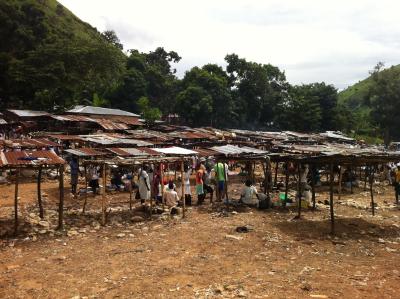
Haiti has been in the news again this week, and not in a good way. Criminal gangs fired on US Marines guarding the US Embassy in Port-au-Prince. Although the Marines did not report injuries, it is an indicator of the gangs’ perception of impunity. In addition, the leader of the gang collective Viv Ansamn called for a gang mobilization in Port-au-Prince, to counter increased anti-gang activities from private and public security forces, and leading some embassies and the United Nations to shut their doors and instruct staff to work from home.
In September, the United Nations released its human rights report on Haiti, covering the period of October 2024 through August 2025, and shedding additional light on the dynamics in the country. The report documents expanding gang control across Haiti. Other findings include:
- The United Nations reports horrific human rights abuses, including unregulated use of lethal force and high casualties. The 1.3+ million displaced persons are especially vulnerable, with reports of massacres, sexual violence, gang recruitment (especially among children), and famine in gang-controlled areas and especially within the displaced persons camps in Port-au-Prince. (p. 15-19)
- The United Nations has asked the United States to assist in tracing the origins of more than 180 different types of seized firearms as well as ammunition, including grenades. Those requests remain “pending.” Some seized firearms are privately made “ghost guns,” likely constructed with parts from the United States, and are untraceable. (p. 19)
- The report highlights the crucial role of well-placed “intermediaries” in facilitating cash and arms transfers to criminal gangs, and in preventing the prosecution of those caught facilitating cross-border arms trafficking. (p. 20-21)
- Seizures of arms and ammunition heading to Haiti have mostly been made in the state of Florida, or from containers coming from Florida. The typical modus operandi involves the use of straw-buyers and the concealment of firearms in used household goods packed in containers prepared by a freight-forwarder in Miami. (p. 22)
- Drug trafficking sustains the economy of gangs, fueling the violence by allowing them to acquire weapons and expand territorial control and reinforce their influence and impunity. (p. 25)
- The Haitian National Police remains underequipped and lacks the operational capacity to combat drug trafficking. There are also reports of complicity and corruption among some police officers. (p. 25-28)
- The Haitian economy is “fragile,” with more than half the country experiencing hunger. State corruption, financial crimes, and diversion of public resources fuel the fragility, including reports of embezzlement of food aid. This leaves the country susceptible to the levels of instability we are now witnessing. (p. 29ff)
- The impact of gang violence on Haiti’s education sector is severe. There are 1,606 schools closed, affecting about 250,000 students and 7,500 teachers. Children’s advocates expect this to have long-term generational consequences for Haiti. (p. 65)
Quixote Center is horrified at what is happening in Haiti and we remain committed to making a difference. Our agriculture and economic development work builds food security and chips away at economic fragility. Our assistance for displaced persons in Gros Morne prevents people from ending up in camps and vulnerable to human rights abuses. That program is also paying tuition for 100 displaced children, keeping them in school and therefore less vulnerable to gang recruitment. Our advocacy on ending arms trafficking has focused on the issues of tracing seized weapons as well as scanners at the Miami River port. Scanners would uncover illicit weapons hiding in shipments of household goods. The Haiti Criminal Collusion Transparency Act addresses the issue of intermediaries sustaining and profiting from the violence. You can take action by urging your senators to support this legislation HERE.
We will not give up until Haiti fulfills its destiny, established when it defeated the colonial powers in 1804, to become a Haitian-led democracy with a thriving economy and an educated, prosperous population.
Thank you for your support. Our work belongs to you.



Comments
Sister Julie Grote (not verified)
Let us "storm" heaven for peace in Haiti! Blessings
Quixote Center (not verified)
Yes and Thank you!
Charlie Cicerale (not verified)
Keep up your good work even though at times it may feel like a drop in the bucket.What you are doing is important.You are offering the people an alternative vision of reality.Something other than violence would put the country on the way to building up the kingdom of God... bless your work.I pray for the people of haiti daily and for you who minister there. God be with you.
Quixote Center (not verified)
Thank you for your blessings. We are very grateful.
Mary Julia Bailey (not verified)
Thank you, Kim. Did you also see the story about the 2 American men who were planning a massacre in Gonaives? Texas men indicted for plotting attack on Haiti’s La Gonâve island https://share.google/lq8tlDnJlAZoI3DAm
Quixote Center (not verified)
I saw it and was horrified. So much to be horrified over these days...
Thanks, Mary Julia.